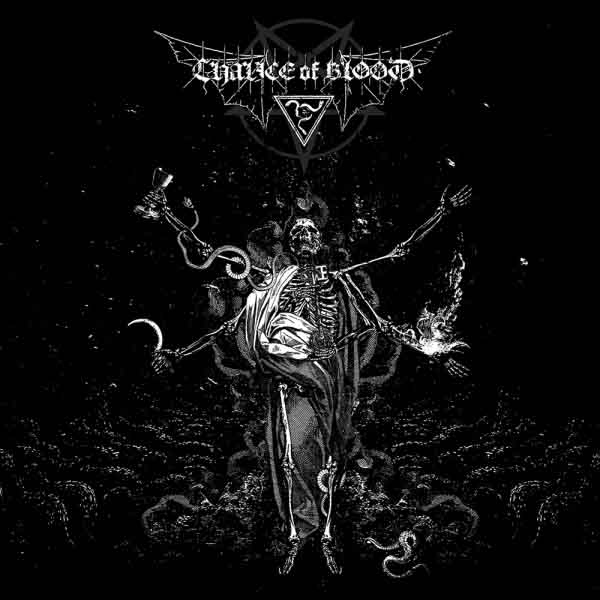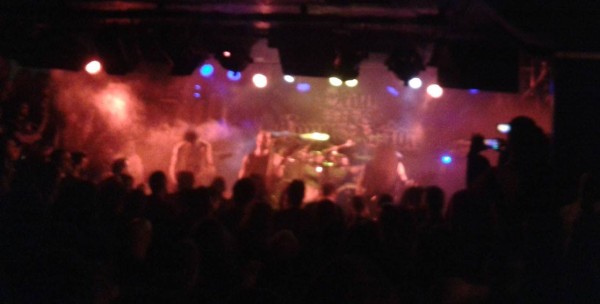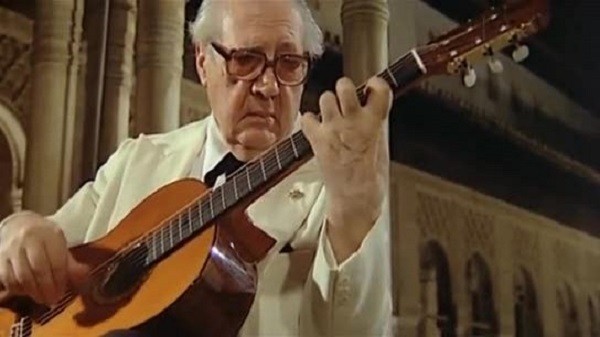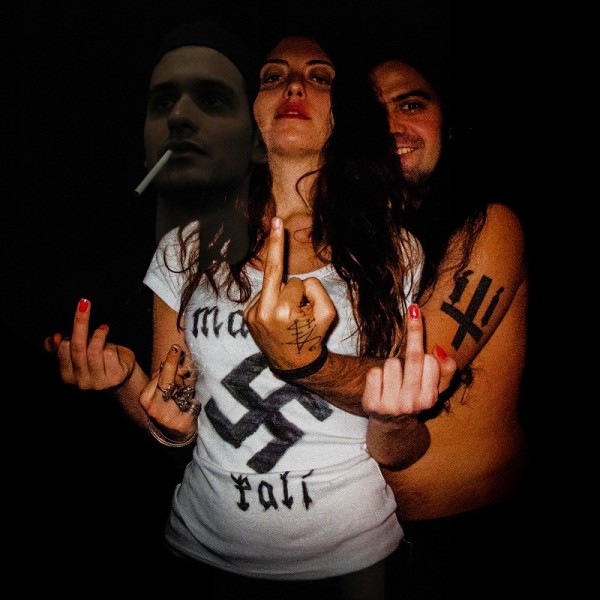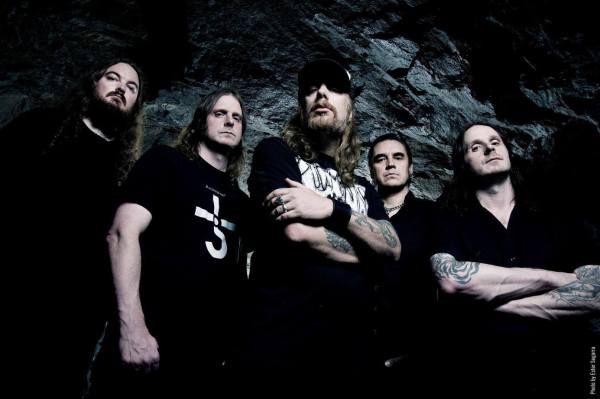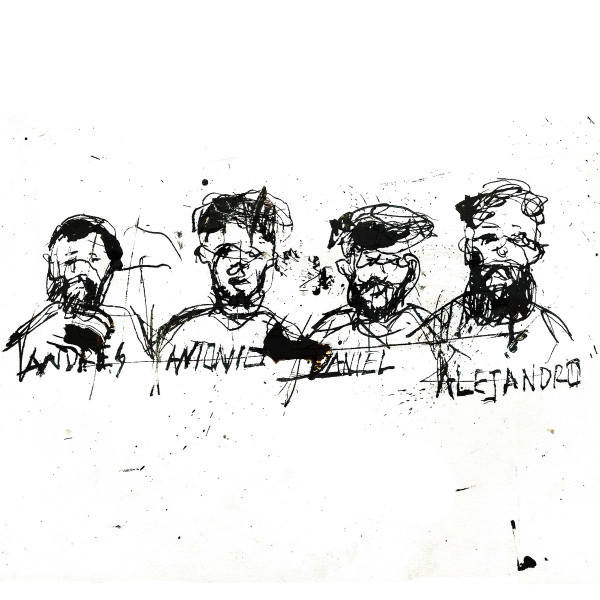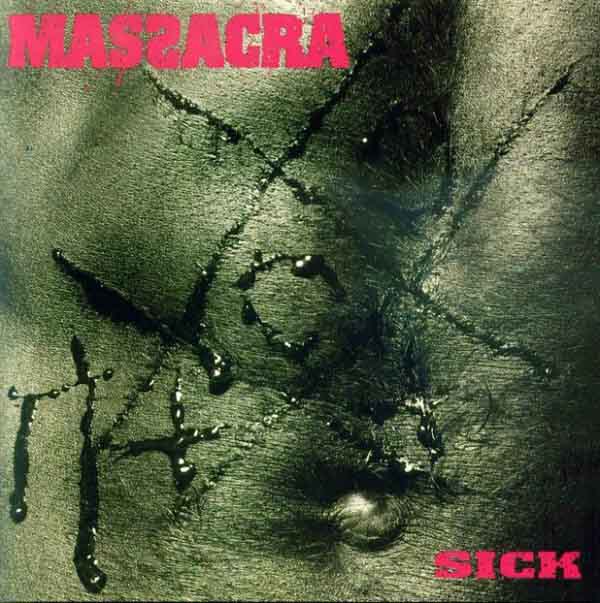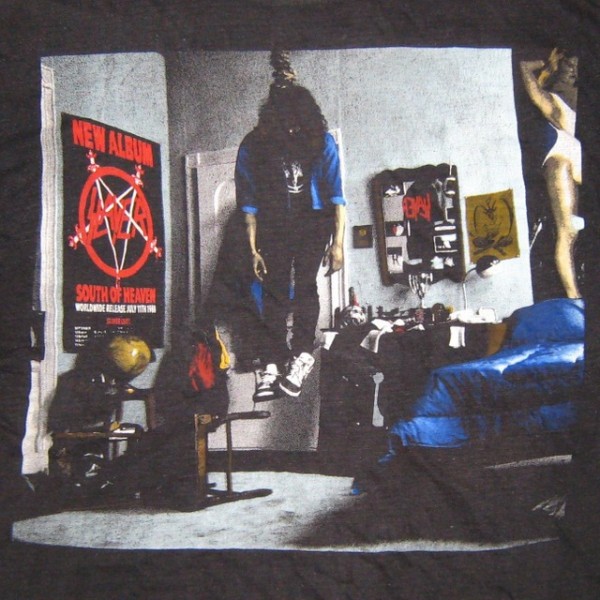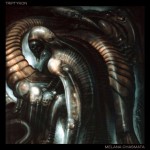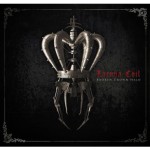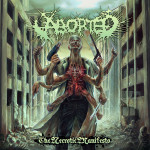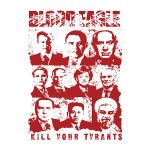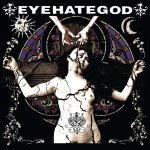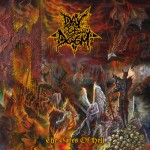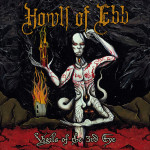The anti-censorship movement known as #metalgate has become a permanent and ongoing event. Like the social justice worker (SJW) antics it combats, it is both activism and activity for those looking to have fun and bash back the insanity of a dying civilization.
If it has a Command and Coordination HQ, it is arguably Scott Vogler’s MetalGate Band group on Facebook. Here, the latest idiocy of SJWs and lapdog media are listed and mocked, with quality arguments against them arising almost instantly and spreading to the far corners of the internet.
We were lucky enough to get a few minutes of Mr. Vogler’s time as he was poring over transcripts of the Judas Priest backward masking trial at the Library of Congress…
What is metalgate and why is it important?
#Metalgate was inspired by the events which sparked #GamerGate. Metalgate serves both musicians and fans alike by standing up for both of their rights to express themselves as they see fit. Like GamerGate, Metalgate seeks to be a watchdog for the press and point out flaws, corruption, and calls for censorship. Metalgate does not exist to silence anyone; on the contrary, it exist to give voice to both sides of any given debate on the topic of heavy metal whether it be a social justice warrior, Heavy Metal Enthusiast, Religious Fundamentalist, Heavy Metal Musicians, or anyone else who has something to say.
You started a group, “MetalGate Band,” on Facebook that now seems like a command and control nexus for metalgate activities. What do you do with this group?
MetalGate Band is meant to attract metal heads, gamers, musicians, artist, and anyone else who would stand up to would be censors. It’s also open for those who disagree with the premise of #metalgate. This is not meant to be a hugbox of any sort.
The group appears to be the only lively community representing the hash tag and we are nearing 300 members. Which as of now is a small but passionate group who for the most part are totally on board with the idea of standing up to the censors who in this case are labeled social justice warriors. There are other areas of concern as well and we address a multitude of topics every day. It’s actually been really educational for me personally.
I want to use this group to create the idea that art itself should never be censored. If you have a favorite form of entertainment or art you should preemptively stand up for it along with anyone else who would stand with you. This is not freedom of speech without scrutiny as I leave the door wide open for debate, challenges, and other perspectives.
What would you hope the average person would learn from metalgate?
I would want them to learn some history about Heavy Metal and the challenges the genre has faced over the years. I would want them to see how often Heavy Metal has faced down and defeated the censors over ridiculous things like sexual lyrics, satanic messages, violent themes, and other contrary philosophies expressed through the lens of Heavy Metal.
Most of all I would hope they would learn that their feelings do not trump the individual’s right to express themselves how ever they see fit.
Why should your average metalhead care about metalgate, or anything beyond their own purchasing? Do ideas have consequences?
To answer the first part of the question let’s go back to 1985 and look at the Parents Music Resource Center (PMRC) hearings where a group lead by Tipper Gore challenged the entire music industry by introducing plans to outright censor artists and musicians from creating material deemed too offensive for the general population. If it weren’t for Dee Snider, Frank Zappa, and John Denver we might very well be living in a world where all of your favorite bands might not exist.
To answer the second half of the question I would hope a simple “yes” would suffice, but I know it won’t so I’ll share an event that happened recently. Just a little over a month ago a group of radical feminists demanded that a band named “Black Pussy” be exiled from playing music. Their belief in feminism led them to threaten a venue with vandalism and violence if it allowed Black Pussy to play there which in turn caused Black Pussy to cancel the show. Black Pussy stood up for their freedom of expression by pointing out how foolishly misguided this group of radfems (“radical feminists”) are, got the name of their band out there, recruited more fans, and have earned the support of MetalGate even though they aren’t a metal band. Good for Black Pussy. Bad for Radical Feminism.
So I hope you see that on both sides there are consequences. Depending on how you interact with society those can be good or bad consequences. So keep that in mind whether or not you decide to join the metalgate community.
When you talked to Shayne Mathis for his hipster podcast, he seemed to be trying to make the point that racially exclusive language can be coercive, while you were pointing out that socially exclusive language like the term “racist” can be coercive. Did you find middle ground on that part of the debate?
(Shayne, if you’re reading this I just want you to realize that I don’t hate you, nor do I totally disagree with you. I don’t think you’re a complete moron or a waste of people’s time or anything like that. To answer the question though I would have to tell you that I don’t feel like we really reached a middle ground.)
It was a good conversation. I agree with Shayne that racial slurs can be extremely ignorant and are coercive attempts to silence people, but want to point out that “anti-racist” shaming is also a coercive attempt to silence people.
We should resist coercive attempts to silence people; this falls under free speech. I don’t agree with being a racist at all but I think it’s worth actually listening to racists in order to know why they feel the way they feel. The idea that we should just avoid it at all cost seems rather dangerous to me. I think the biggest reason Shayne and I disagree on the topic is that he doesn’t feel anyone other than white people can be racist where as I feel the term itself can be applied to anyone from any part of the world or racial background.
I think it’s a dangerous precedent to set that only a certain group of people can be criticized for their racism while others get a free pass to be as racist as they want to be. The middle ground is pretty far away because of this disagreement and I would hope we could bridge that gap as all of this continues.
Do you think racism exists, and does the term “racist” have any meaning, or is it yet another politically manipulative term for someone who has noticed what our leaders would prefer they do not notice? (And if so, what is being noticed?)
Yes, I think racism exists and yes the term “racist” has a meaning but it also serves as a politically manipulative term, just as any word can take on that role over time.
Honestly, who knows what they’re really hiding? Maybe just the fact that they themselves have their own issues with bigotry and are projecting it on to others. Maybe there are more insidious things and skeletons people hide with that word and use it to shoo away those who know better but in that extreme it probably wouldn’t be quite so easy to stop someone from exposing you if they had real evidence. I think the term or any term for that matter can be used to socially condition a general response out of the masses.
We’ve seen this happen before through marketing, government propaganda, movies, songs, etc. I don’t think the lesson here is whether or not people use “name calling” to hide something and dismiss other perspectives. The lesson here is how you deal with such a turn of events. When someone calls you a really mean name for obvious political reasons don’t let the power of that word frighten you from standing for your principles. What they really want is for you to sit down, shut up, and capitulate. It’s a last ditch effort to silence an already pretty silent majority from pursuing any kind of “justice” that would come swiftly as a result of a big enough information leak.
Can you tell us a bit of your own background in metal? Are you also involved in gaming?
I recall hearing Metallica quite a lot in my early years I finally became a fan of heavy music (not heavy metal) the very first time I saw Tool’s video for their song “Sober.” It wasn’t until #metalgate though that I really took a dive into heavy metal and the history lesson that comes with it. It’s such a vast genre of music and have had to cram it all in by using Spotify and listen to as much as possible to and from work every day.
In just a matter of months I went from a progrock/progmetal/desertrock kind of guy to a mad man trying to listen to as much heavy metal as humanly possible spanning all the subgenres, generations, and styles of metal and I’m still not even close to having a good grip on reality when it comes to “Heavy Metal” but it’s been well worth it to me and will continue to learn because I just fucking enjoy it!
As far as gaming goes my earliest memory is Super Mario Bros, Kid Nikki, Zelda, Final Fantasy, and others on NES. That was on my sister’s console however so I can’t really say I was into it as much as I would be later. My very first console was a Super SNES with Super Mario World, Starfox, Chrono Trigger, Zelda 3: A Link to the Past, Final Fantasy, etc, etc.
I currently still mostly play retro games; if not I turn on my Xbox 360. I am disappointed with the direction of the video games industry. For multiple reasons, one of which sparked #Gamergate and in turn #metalgate, but other reasons as well. I don’t like to feel like I’m just playing a movie. So many games today are just that. While it looks impressive it doesn’t feel anything like a “video game” to me. I fully support #GamerGate for these reasons. I hope it sparks developers to start being more innovative and play to the strengths of their audience rather than for mass appeal.
I guess this is a question I wish someone would answer, because no one addresses it. If we have many different groups in our society, of different types (religion, race, sexual orientation, etc), and each group is offended by at least one things usually where it disagrees with another group how do we unite these groups into a society?
I would like to live in a world where no one bans anything no matter how offensive it is. I think we’re seeing the beginnings of a movement in this direction unfold over the last six months or so with things like #gamergate, #metalgate, and #comicsgate. It is not a conscious ideology so much as people just getting fed up with not being able to express themselves without some lunatic jumping down their throat with histrionic tirades. It has become a type of hobby to keep a watchful eye on the press, government, and radical groups and calling out bullshit as we see it hit the news. So for me right now the plan is to provide a platform for both sides of this argument to express their points.
I see this kind of attitude growing in light of the #gates spurring on people to stand up for the art and entertainment they love. I want to hear both sides but I am definitely in the camp that feel it’s important to take a firm stance against anyone demanding special rights, privileges, censorship, or other harmful precedents they propose. People do tend to selfsegregate but it’s not something I find to be particularly harmful. If people want to be left alone they can create that situation for themselves. People of all stripes should live the way they see fit and if that means staying in a community of people who are like you then by all means go for it.
On the other hand we’re free to criticize any community or group of people we see fit and they should be willing to stand up for themselves in light of that. This whole idea of “safe spaces” and “censorship” to me is a thousand times more harmful than any harsh criticism, ignorant slurs, or bigotry that might come out. So while I support the right to remain silent I also see that it’s important to speak up at times and not run away from criticism.
What is an “SJW,” how do I recognize one, and what is the purpose of SJW’s?
A “Social Justice Warrior” (aka SJW) is someone who concerns themselves in meddling with the affairs of different groups. It is someone who has taken on an extremely left wing world view point and will often be just as over the top with their beliefs as a fundamentalist Christian or Muslim. You can recognize them by their most obvious attribute, histrionics. If you dare mention a word about something they take personally you will see a display unlike any other. I would go so far as to say they do even crazier things than religious people do because SJWs claim to be all about science, atheism, facts, and logic but act out in such ways that contradict this precept.
You can find SJW’s hanging out at the mall, coffee shops, book stores, open mic nights, and on the internet (especially Tumblr). If you still haven’t a clue on where to look for an SJW go look at the #Gamergate hashtag on Twitter. The people who are antigamergate are almost exclusively SJWs. Also visit Tumblr and just search the term Social Justice Warrior. There you will find them waxing dramatically about how oppressive everything is. I see SJWs as, for the most part, cattle for more intelligent people to take advantage of. I believe that the more prominent SJW figureheads are not as stupid as they appear and realize just how easily lead astray people are.
To ask their purpose depends on which kind of SJW you’re talking about. Some of them exploit others, while others truly believe in their nonsense. Over all I think their purpose is to get away with as much of the same things they complain about all the time. They will criticize one person while running away from criticism themselves. This is a hallmark of social justice warriors. They want to manipulate society into guilt and shame and reap the rewards by coercing more and more power, influence, and money out of society all while having a free pass to be as bigoted as they want to be because they’re special.
David Draiman (vocalist of numetal band Disturbed) raised an interesting point the other day. He was disturbed that GamerGate opposes censorship, but hadn’t spoken out against antiSemitism. Some said that gameragate should support free speech entirely, while others thought it should be against any “bad” speech like racism or antiSemitism if it was legitimately so. What’s your take?
David brings up a good point. If you’re going to stand against “bad language” then you have to be willing to stand against all of it. I would say however that there should be unfettered free speech. This goes back to what I said about conflict avoidance and how it’s actually more detrimental than the initial slur. You can be against the slur without being for censorship of any kind.
No one ever has all the answers and groups like Gamergate have a huge and diverse crowd who seem, to me at least, to support this notion of unfettered free speech and a willingness to address these kinds of concerns in a logical way without demanding silence from detractors. To me this is a step in the right direction. The opposite view would be to either ignore the bigots and never address the issue, or try to censor them without considering what they are trying to say. I think that’s the wrong way to look at it.
What’s next for metalgate? Do you hope it will leave lasting change, stay active as an ongoing concern, or get bigger, and lead to an ultimate showdown between SJWs and metalheads?
It’s truly difficult to say what’s next for #metalgate. I plan on continuing on with this by creating new content on YouTube, creating a WordPress site specifically for metalgate, and constantly signal boosting content creators on the Facebook page. Right now it’s all about cultivating a healthy, driven, and passionate community.
I would love to see it leave a lasting change in the landscape of heavy metal. I see that change not so much as a “change” but a reinvigoration of the kind of unfettered desire to express oneself without apology or compromise. I think the reason metalgate continues despite a slow growth and only a handful of passionate metal heads is because it represents something that’s always been a part of Metal: the desire to express yourself how ever you see fit and encouraging others to do the same even if you flat out disagree with them.
If we’re talking about real wishes, someday I’d like to put on a music festival. At this giant three-day event, there would be a showdown between the different forces competing for control of metal. The two biggest contenders would be mainstream metal and underground metal, SJWs and Metalheads if you will. I would invite all of the mainstream metal bands, underground metal bands, Christian bands and others to try to outperform one another. Imagine the lengths at which some artists would go to in order to leave the impression that what they are playing is METAL and what others are playing is merely rock and roll. That is the sort of attitude and competition that made early British bands, thrash bands, and black metal bands famous. The will to push the envelope of society in order to be the heaviest, most brutal, most technically gifted, most worshiped metal acts in the world.
I believe this has the potential to reinvigorate heavy metal if the right voices are lent to it and the right minds come together to make this leave a lasting impression on the history of heavy metal. Until then, I will just continue managing the Facebook group and welcome all comers to throw their name in the hat. Finally, I’m just an average guy on the internet with a full time job and starting out a family. If you are in the metal industry and you feel the way I and others do about this please give your voice, resources, and talent to it and shake things up. You could be the one to take this from an internet argument to the headlines as you make waves in the music industry by redefining heavy metal.
Thank you, Scott, for taking the time to do this somewhat prolonged and specific interview.
Scott and Jim “Kamikaze” Thompson have started a talk radio style podcast-ish video series in which they analyze the issues of the day according to #metalgate and #gamergate. Session One begins below.
69 CommentsTags: gamergate, metalgate, metalgate band, podcast, scott vogler, sjws

